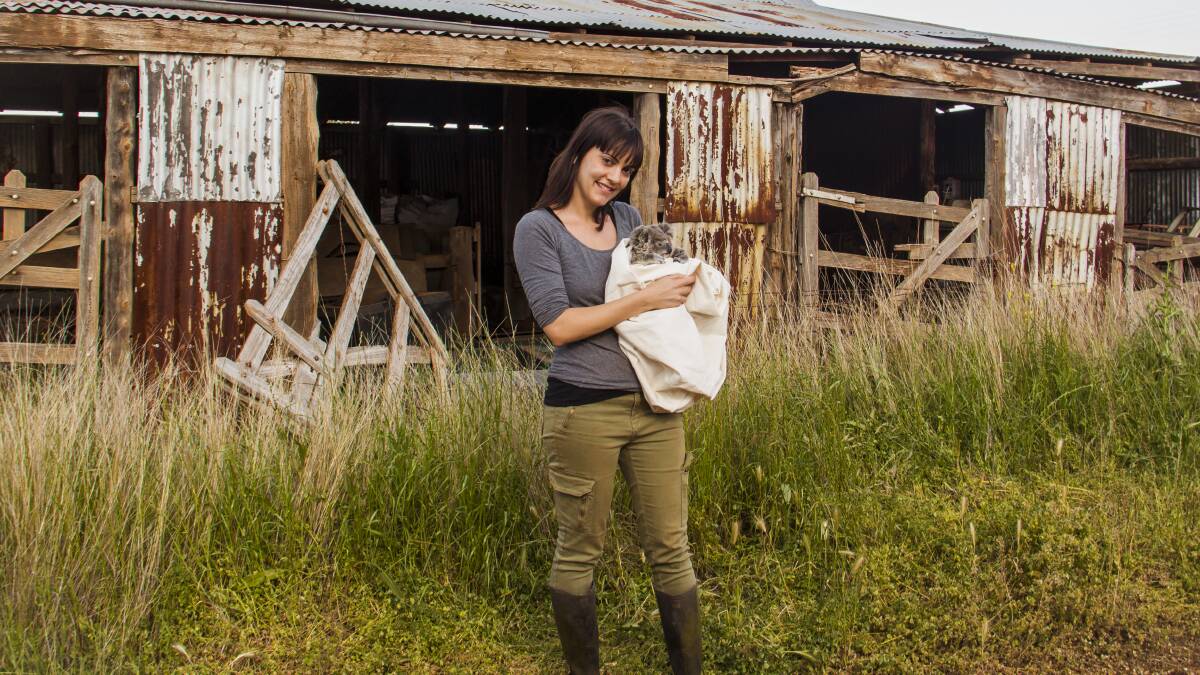
About 200 koalas have been microchipped in the world-first study a University of Sydney researcher hopes will help slow the downward spiral of Gunnedah’s koala population.
Subscribe now for unlimited access.
or signup to continue reading
In Curlewis to speak at a koala habitat field day this month, Dr Valentina Mella said she had never seen the region so dry and any information about the benefits of providing drinking water to koalas could be critical in times of drought.
Sixteen specially-designed “Blinky Drinkers” have been installed in study areas in Breeza and Gunnedah, and Dr Mella said recent funding from Local Land Services and the Office of Environment and Heritage had allowed more koalas to be microchipped.
Since the microchips were first used in October 2017, there have been 533 recordings of animals drinking at the Blinky Drinkers.
“The microchips are really, really important for us,” Dr Mella said. “They are the way we can identify which animals are drinking and which are not drinking.
We have a responsibility to do as much as we can to mitigate the threats.
- Dr Valentina Mella
“We can compare if the animals who access the drinkers are doing better, and for me, that is the last step in this research. We can look at the relationship between use of drinkers and better body conditions.
“This could be something to help them with heatwaves. I’ve never seen it this dry here. It’s really, really dry. It is a perfect time to explain this and understand if they need it.”
While her research is contracted until the end of this year, Dr Mella is seeking to continue the study beyond that time through crowdfunding.
She said she was continuing to see a decline in koala numbers in Gunnedah, with about 70 per cent of animals impacted by chlamydia and disease, and had only seen about 10 young koalas in the past three years.
“It is a big worry,” Dr Mella said. “We have a responsibility to do as much as we can to mitigate the threats.
“If we can plant trees, we need to plant trees. If we can protect habitat, let’s do it. If we can provide water to help keep koalas healthy, then we need to do that.”
She said it was critical to continue to research to understand as much as possible about koalas.
“The more we know about it, the easier it will be to help,” Dr Mella said.
To contribute to crowdfunding, visit crowdfunding.sydney.edu.au/project/8132

